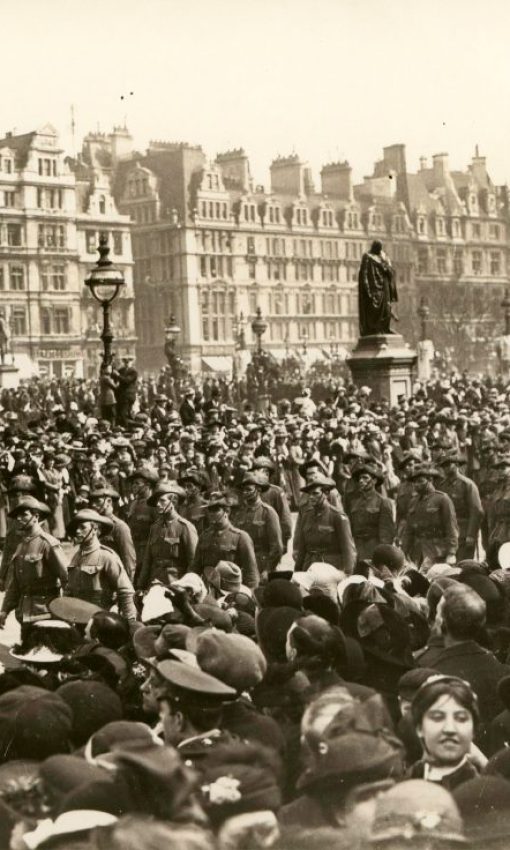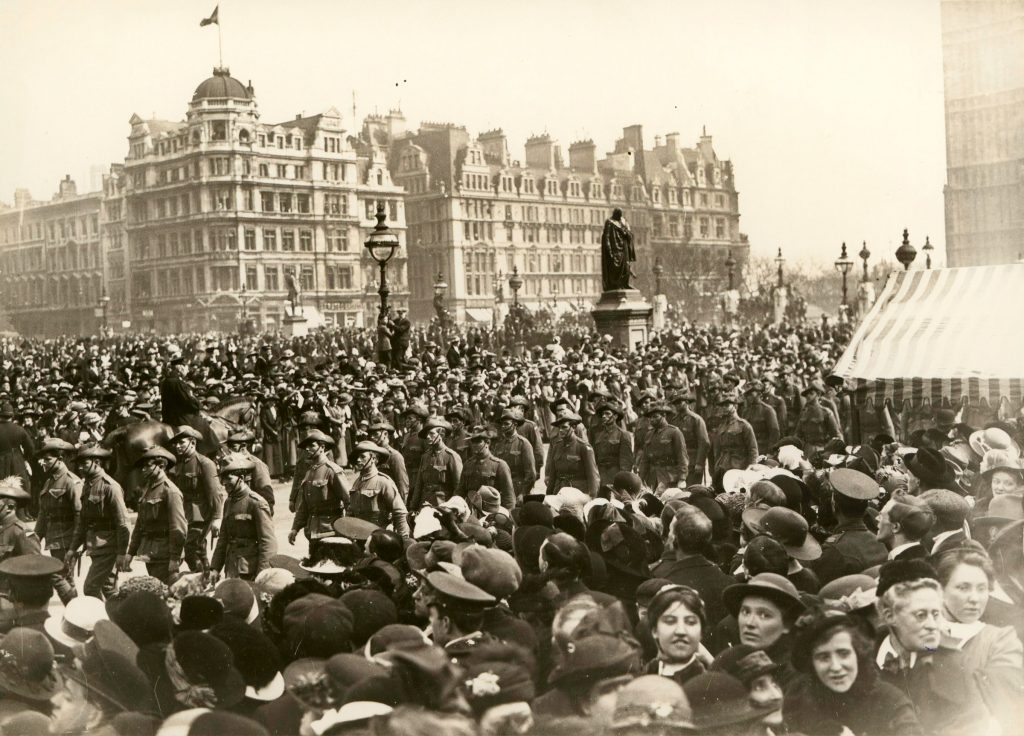HISTORY OF HUMAN RIGHTS
Originally, people had rights only because of their membership in a group, such as a family. Then, in 539 BC, Cyrus the Great, after conquering the city of Babylon, did something totally unexpected—he freed all slaves to return home. Moreover, he declared people should choose their own religion. The Cyrus Cylinder, a clay tablet containing his statements, is the first human rights declaration in history.The idea of human rights spread quickly to India, Greece and eventually Rome. The most important advances since then have included:
1215: The Magna Carta—gave people new rights and made the king subject to the law.
1628: The Petition of Right—set out the rights of the people.
1776: The United States Declaration of Independence—proclaimed the right to life, liberty and the pursuit of happiness.
1789: The Declaration of the Rights of Man and of the Citizen—a document of France, stating that all citizens are equal under the law.
1948: The Universal Declaration of Human Rights—the first document listing the 30 rights to which everyone is entitled.

history Of Human Rights

Ask anyone about, “What do you know about human rights?” and you may get varied responses for the same. While there are only few, who know about all their rights, there may be some who’ll only tell you the rights they know about. Historically speaking, in the past, there was no concept of human rights. After a very long time, emerged an idea, that people should have certain freedoms. And that idea, in the wake of World War II, resulted finally in the document called the Universal Declaration of Human Rights, and the thirty rights to which all people are entitled.
We, as an organization, are here to must prevent private actors from violating the human rights of others. Not just that, we also commit to fulfilling and taking positive action to facilitate the enjoyment of basic human rights, by anyone and everyone.
Generally when people are asked to name their rights, they might only list freedom of speech and belief, and perhaps one or two others. Therefore, we’re here to educate, pass the information and take necessary actions on protectingthe full scope of human rights of an individual, which is very broad. Even if it means choice and opportunity, or the freedom to obtain a job, adopt a career, right to travel widely and the right to work gainfully without harassment, abuse and threat of arbitrary dismissal, or just to embrace the right to leisure – we know it all, and can safeguard you with everything that’s connected to the fundamental of human rights.
Characteristics of Human Rights, on which our work is based upon:
- Universal – Human rights belong to all people, and we strive to teach, educate, and promote respect for these rights.
- Inalienable – Human rights cannot be taken away, and we are into providing effective remedies for those whose rights are violated
- Interconnected – Human rights are dependent on one another, and we aim to share our expertise and legal advices for all, in the best possible ways
- Indivisible – Human rights cannot be treated in isolation, and we ensure to make people understand that at the core of the idea of human rights are human dignity and equality
- Non-discriminatory – Human rights should be respected without prejudice, because we know people equal in their humanity deserve fair treatment
Under the guidance of Eleanor Roosevelt, the then-first lady of the United States and a politician, diplomat and activist in her own right, the Universal Declaration of Human Rights (UDHR) was born.
As stated by Article-1: “All human beings are born free and equal in dignity and rights. They are endowed with reason and conscience and should act towards one another in a spirit of brotherhood.”
There are 30 actions in the Declaration of Human Rights – 30 rights of everyone on this planet. The remaining articles include the right to asylum, the right to freedom from torture, the right to free speech and the right to education. Do you know them all?

1. We’re all born free and equal
We all have our own thoughts and ideas. We should all be treated in the same way.
2. Don’t Discriminate.
These rights belong to everybody, whatever our differences.
3. The Right to Life.
We all have the right to life, and to live in freedom and safety.
4. No Slavery.
Nobody has any right to make us a slave. We cannot make anyone our slave.
5. No Torture.
Nobody has any right to hurt us or to torture us.
6. You Have Rights No Matter Where You Go.
I am a person just like you!
7. We’re All Equal Before the Law.
The law is the same for everyone. It must treat us all fairly.
8. Your Human Rights Are Protected by Law.
We can all ask for the law to help us when we are not treated fairly.
9. No Unfair Detainment.
Nobody has the right to put us in prison without good reason and keep us there, or to send us away from our country.
10. The Right to Trial.
If we are put on trial this should be in public. The people who try us should not let anyone tell them what to do.
11. We’re Always Innocent Till Proven Guilty.
Nobody should be blamed for doing something until it is proven. When people say we did a bad thing we have the right to show it is not true.
12. The Right to Privacy.
Nobody should try to harm our good name. Nobody has the right to come into our home, open our letters, or bother us or our family without a good reason.
13. Freedom to Move.
We all have the right to go where we want in our own country and to travel as we wish.
14. The Right to Seek a Safe Place to Live.
If we are frightened of being badly treated in our own country, we all have the right to run away to another country to be safe.
15. Right to a Nationality.
We all have the right to belong to a country.
16. Marriage and Family.
Every grown-up has the right to marry and have a family if they want to. Men and women have the same rights when they are married, and when they are separated.
17. The Right to Your Own Things.
Everyone has the right to own things or share them. Nobody should take our things from us without a good reason.
18. Freedom of Thought.
We all have the right to believe in what we want to believe, to have a religion, or to change it if we want.
19. Freedom of Expression.
We all have the right to make up our own minds, to think what we like, to say what we think, and to share our ideas with other people.
20. The Right to Public Assembly.
We all have the right to meet our friends and to work together in peace to defend our rights. Nobody can make us join a group if we don’t want to.
21. The Right to Democracy.
We all have the right to take part in the government of our country. Every grown-up should be allowed to choose their own leaders.
22. Social Security.
We all have the right to affordable housing, medicine, education, and childcare, enough money to live on and medical help if we are ill or old.
23. Workers’ Rights.
Every grown-up has the right to do a job, to a fair wage for their work, and to join a trade union.
24. The Right to Play.
We all have the right to rest from work and to relax.
25. Food and Shelter for All.
We all have the right to a good life. Mothers and children, people who are old, unemployed or disabled, and all people have the right to be cared for.
26. The Right to Education.
Education is a right. Primary school should be free. We should learn about the United Nations and how to get on with others. Our parents can choose what we learn.
27. Copyright.
Copyright is a special law that protects one’s own artistic creations and writings; others cannot make copies without permission. We all have the right to our own way of life and to enjoy the good things that art, science and learning bring.
28. A Fair and Free World.
There must be proper order so we can all enjoy rights and freedoms in our own country and all over the world.
29. Responsibility.
We have a duty to other people, and we should protect their rights and freedoms.
30. No One Can Take Away Your Human Rights.
WHAT WE DO
As an empowered institution, we are mandated to examine, monitor and publicly report either on human rights situations in specific countries or territories (known as country mechanisms or mandates), or on major phenomena of human rights violations worldwide (known as thematic mechanisms or mandates).
The main themes that we address include the right to self-determination; racism; the right to development; the question of the violation of human rights and fundamental freedoms in any part of the world; economic, social and cultural rights; civil and political rights, including the questions of torture and detention, disappearances and summary executions, freedom of expression, the independence of the judiciary, impunity and religious intolerance; the human rights of women, children, migrant workers, minorities and displaced persons; indigenous issues; the promotion and protection of human rights, treaty bodies and national institutions; and advisory services and technical cooperation in the field of human rights.
From time to time, we have identified areas in which existing standards needed to be further developed to confront new and growing concerns. Other subjects that have been under consideration by the working groups of our Commission are the right to development, and structural adjustment programmes and human rights.
Human rights standards have little value if they are not implemented. Consequently, we devote much of our time to examine issues of implementation. In fact, our broad network of mechanisms – experts and representatives play an important role in reporting to the Commission annually.
